Go Off-Grid with Solar Energy: A Complete Guide
Go Off-Grid with Solar Energy: A Complete Guide
Go off-grid, more commonly defined as not having a dependence on public utilities such as electricity, sounds appealing for a lot of reasons. The idea of being self-sufficient, powering your own home with solar energy, and maybe even building that home with your own two hands can sound like a dream and a challenge for people who wish to live life on their terms.
Maybe you’ve thought about it many times before, could you make it out there alone in the wild? Exactly how feasible is it to live without the electrical grid using solar energy as your only power source? Whether you dream of that cabin in the woods or just want to exert your energy independence over your local utility, going off-grid is possible but that doesn’t mean that it’s beneficial.
For starters, being off the grid takes a lot of planning, not to mention that it’s incredibly expensive to get started. Plus, you’ll need to have backup energy sources on hand, particularly if you’re not ready to let go of your power-hungry devices.
There are plenty of reasons to consider going off-grid with solar energy:
Savings –
Cutting ties with the local power company means that you will never have to pay a monthly power bill again because all of your energy will come from a renewable source.
Environmental benefits –
Using entirely renewable energy for your power needs means a lower carbon footprint.
No blackouts –
All of your energy is stored in the battery or batteries attached to your system, so you can draw on it whenever you need it—during a major winter storm, on hot summer days when the power grid is overloaded, or anytime in between. You won’t be at the mercy of the local power company.
Building locations –
off-grid solar systems are ideal for homes in areas where there is no current connection to a local power grid, such as a cabin up in the mountains or a home that is off the beaten path. Going off-grid allows you to build without the need to pay for power lines out to the house.
Solar power has the amazing benefit of helping reduce strain on the electrical grid when demand rises during peak seasons or extreme weather hits. By generating your clean power and even sending excess energy back to the utility in some cases, you are creating a more reliable electrical grid.
Virtual power plants (VPP) are another example of homeowners using their solar systems for the greater good of their community. VPPs come into play when energy demand is higher than the available amount. When this occurs, home batteries that are connected to the VPP trade their stored electricity to the electrical grid to help meet the demand.
The reliability of the electrical grid has become an increasing concern for many homeowners as power outages become more commonplace. That’s why the popularity of home solar systems and VPPs has been on the rise. In the 2021 Energy Sense Index conducted last year, it was discovered that two out of every five homeowners worry about power outages every month of the year.
It is important to note that installing solar panels doesn’t necessarily mean that you’ve gone off-grid. Typical solar energy systems aren’t always designed to generate enough electricity to power an entire home, but rather maintain a connection to the utility company’s main grid as backup.
This is referred to as a hybrid system, a less expensive and more flexible option, especially for homeowners that live closer to their area’s power grid.
Suggested Articles
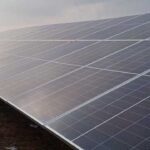
Sir! Solar Mein Itna Chalta Hai!” When to Reject a Site: The Truth About Shadow Analysis
Discover the importance of solar site assessment and shadow analysis to optimize rooftop solar performance, prevent shading losses, and maximize energy generation.

New Loan Scheme for solar rooftop projects by IREDA
Solar installation for petrol pumps offers huge savings and energy independence. This 2025 guide explains system cost, subsidy, ROI, and installation process.
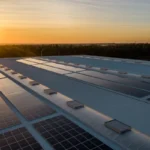
Capex vs Opex Solar Model: Which is Better for Your Energy Needs?
Solar energy systems are becoming increasingly popular in homes and businesses around the world. With rising electricity costs, solar energy provides an attractive alternative to traditional energy sources.
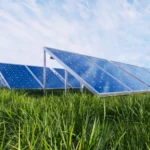
Solar Industry Faces Growing Losses from Underperforming Equipment
According to the Raptor Maps’ Global Solar Report, the amount of power loss due to equipment anomalies has nearly doubled from 1.61% in 2019 to 3.13% in 2022. This trend is expected to continue, with anomaly-driven power loss potentially growing to almost 6% by 2025.
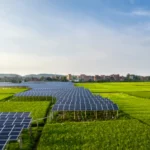
AVANCIS Pushes CIGS Thin-Film Solar Modules Beyond 20% Efficiency
AVANCIS achieves a breakthrough in solar technology, pushing CIGS thin-film modules beyond 20% efficiency for higher performance and energy output.
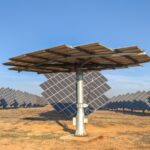
6 Innovative Applications of Solar Energy You Should Know About
Explore how solar energy is revolutionizing daily life and industries. From solar-powered transport to smart cities, discover six groundbreaking solar applications shaping a cleaner, smarter future.
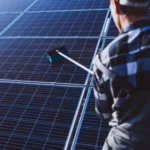
Solar O&M Services: How to Ensure Peak Performance & Maximum Power for Solar System
Discover how Solar O&M services keep your solar system running at its best. From routine maintenance to performance monitoring, ensure maximum power and efficiency.
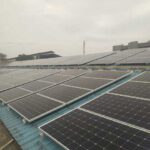
Are Colleges and Schools ready to take up Solar challenge?
Adopting solar energy can help schools and colleges reduce electricity costs and promote sustainability. This guide explores how educational institutions can implement rooftop solar projects, the benefits, and what steps are needed to take on the solar challenge effectively.